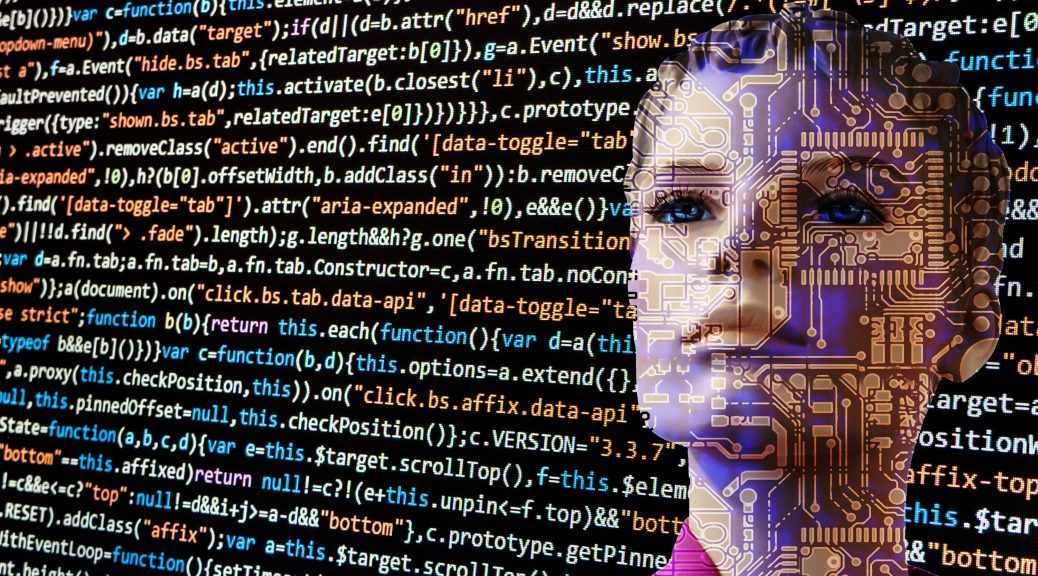
SMF President, David Falzani, explores the challenge AI poses to business and wider society.
The hypothetical outcomes of AI for business have ranged from utopian to hysterical among commentators, with many focusing in particular on the implications of AI and automation for work – and the risk of redundancies. The Bank of England estimates that 48% of human workers will eventually be replaced by robotics and software automation. ArkInvest meanwhile predicts that 76 million US jobs will disappear in the next two decades.
Daniel J. Arbess, writing for Fortune magazine, goes as far as to argue that “the accelerating penetration of job-displacing software presents maybe the most serious (and still underappreciated) socio-economic challenge to market economies in generations, both in our own country and abroad.” Jobs, it seems, are the biggest worry. “Applied software technology reduces costs and prices, taking fewer consumption dollars a longer way. We’re starting to hear a lot about this, because entrepreneurs, investors and shareholders of companies will be enjoying epic financial rewards from the AI economy–but what about everyone else? People still need jobs.”
Meanwhile, Professor Stephen Hawking raised the stakes somewhat in 2014 saying “The development of full artificial intelligence could spell the end of the human race.” whilst Elon Musk warned that AI is “our biggest existential threat”.
AI is, then, conveyed as a threat to business, employment, and even existence, sometimes by people who don’t understand how the technology is currently being used, sometimes by the science and technology community. At the same time, it’s floated as the basis for a universal basic income and the new Industrial Revolution, as well as massively increased efficiencies across all industries. So is AI a threat or an opportunity for UK businesses?
Blake Irving, the CEO of GoDaddy, a global web hosting company, explains that “the AI that’s real today is known as ‘Narrow AI’.” Rather than worrying about super intelligent Skynets wiping humanity off the face of the earth, Blake argues we should instead focus on narrow AI as “what’s actually changing everything.” Citing Rand Hindi, who defines narrow AI as “the ability for a machine to reproduce a specific human behaviour, without consciousness… a powerful tool to automate narrow tasks, like an algorithm would”, Irving argues that narrow AI will replace or transform any job where information gathering and pattern recognition drive a volume business. “That’s not just labourers. That’s accountants, traders, estate agents, lawyers, software developers, and on and on.”
A good example of this ‘narrow AI’ can be seen in eBay’s introduction of personalised homepages and a ‘ShopBot’ for its users. “Using structured data – a transformative step to drive discoverability of our vast inventory, insights into supply and demand, pricing trends, among other things – and artificial intelligence, we’re creating a shopping experience that is tailored to each eBay user’s interests, passions and shopping history,” CEO Devin Weing explains. “With more than one billion items … we’re making shopping on eBay all about you, instead of a one-size-fits-all approach.” This is massively increasing sales conversions for the company and its traders.
Irving goes on to examine three categories of ‘AI insulated jobs’: those which require meaningful creative interactions with other people; those that won’t be replaced due to the limitations of robotics but will be transformed side-by-side with Narrow AI tools; finally, entrepreneurial roles, which can encompass such a diversity of work as to be difficult to automate. Irving uses these categories to argue that the ‘end result’ of AI displacing jobs will be the need for a population better educated to manage or interface with AI. It will, in other words, incentivise skills-based specialist technology education and ultimately spur a demand for creative thinking and skills, the things that narrow AI cannot provide.
The structuring of data that narrow AI affords us isn’t so much abolishing old skills and roles, then, as it is creating a demand for integrating new capabilities into the modern business plan. If anything, it is actually increasing the demand for creative entrepreneurs, whose skill sets are more valuable than ever while productivity and efficiency shoots up across the board thanks to AI. A similar increase in productivity was seen in the 1990s due to the implementation of MRP and MRP2 that saw skilled and semi skilled roles replaced with algorithms.
It might be worth considering that every threat is an opportunity because it forces change. The exploding volume of literature on the so-called AI revolution suggests that these technological developments may offer massive efficiency improvements, and radical changes to how businesses get things done. Are you able and willing to turn AI into an opportunity to radically overhaul skill sets and workplace practices to keep ahead of the curve, or are you not in a position to invest in this fledgling technology yet, and at risk of falling behind? The answer depends largely on the kind of organisation you run, to what extent it has information gathering and pattern recognition centred tasks, and how open it is to change, as well as how well you grapple with the reality of AI technology as it currently stands.







